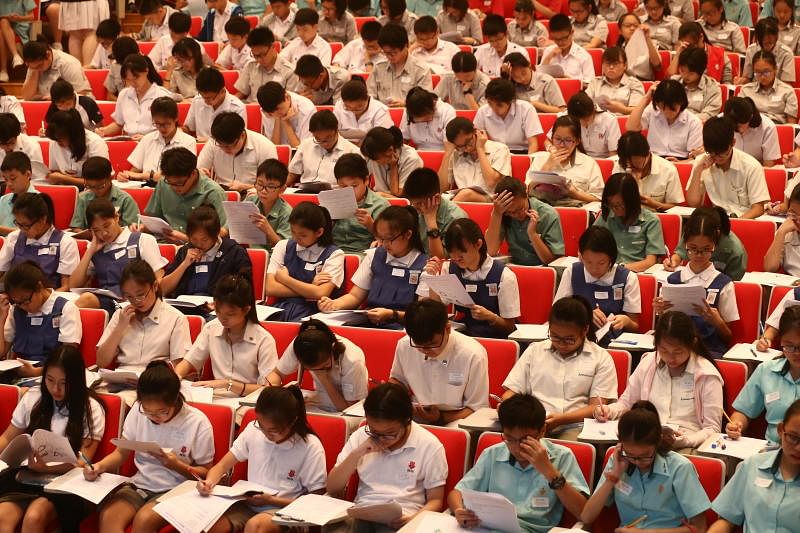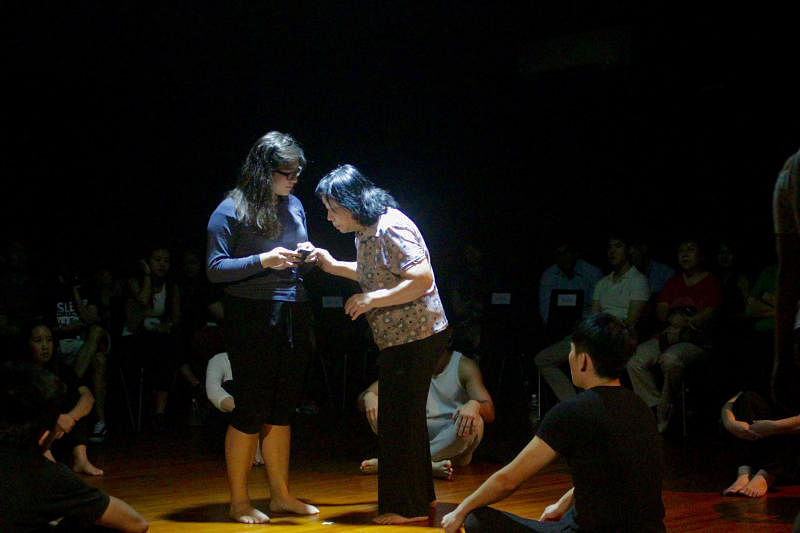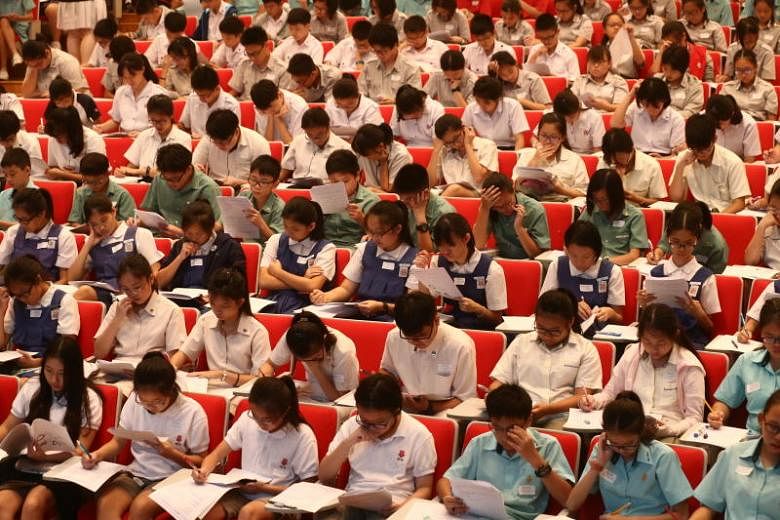With so many attention-grabbing headlines this week, you might have missed some very worthy and interesting commentaries that The Straits Times has published, so here's a quick primer on three.
Who perform better: native students or immigrant students ?
In this article, economics lecturer Kelvin Seah Kah Cheng analyses data from the 2012 Programme for International Student Assessment (Pisa), a test measuring performance in the mathematics, science and reading achievements of 15-year-old students. Data from 5,546 students in Singapore were studied, and the sample was nationally representative.
He grouped them into native students and immigrant students (those born abroad), with the latter forming 15 per cent. He found that more immigrant students had better educated parents: "While 61 per cent of immigrant students have fathers with tertiary education and 52 per cent have mothers with tertiary education, the corresponding values are only 38 per cent and 30 per cent for native students."

The data shows clearly that immigrant students outperform native ones. "A comparison of test scores shows that immigrant students fare better in all three subjects. On average, comparing students of the same grade level, immigrant students outperform native students by 0.40, 0.35 and 0.31 standardised point respectively in maths, science and reading (test scores are standardised by subtracting the average test score of the student's cohort from each student's test score before dividing this by the standard deviation of the test score distribution). These achievement gaps are sizeable, practically speaking, and highly significant statistically."
What accounts for immigrant students' better performance? "A major reason for the superior performance of immigrant students is their better socio-economic backgrounds," concludes the writer, who adds that this showed, reassuringly, that "immigrants do not dilute the quality of the peer group which native children are exposed to".
Will you still employ me, when I'm 68?
I have a soft spot for anecdotal, whimsical essays by people who can make words sing, dance, or do the hula hoop. One such writer is Margaret Chan, the veteran actress, who got her PhD in her 50s and is associate professor of theatre and performance studies (practice) at the Singapore Management University. She is now dreading next June, when she hits retirement age. In this heart-felt yet witty article, Will You Still Employ Me, When I'm 68?, she writes of her fears: "Old equates with debased. A magical portal from one world into the other is the statutory retirement age. One day you are constantly assailed with decision-making, the day after that birthday you can sit at your desk and never get asked a question."

"According to Bloomberg, getting the sack feels worse than being divorced and more devastating than losing a spouse to death. It has something to do with losing meaning in life. I am already steeling myself against next June when I will be 68 and my employment contract comes up for renewal. The corporate human resource explanation is that this is regeneration, a natural rite like when a defeated soldier will fall upon his sword. Needing to calm my nerves, I went to VivoCity to anaesthetise myself in a movie. Instead I got traumatised: A bank of shining new dispensing machines stood where human ticket-sellers had been. Redundant, replaceable, useless. It happens."
In an age of start-ups and social media where it sometimes feels like millennial is the only valid phase of life to be, I think it's important for mainstream media like The Straits Times to feature people in different phases of life. We all hope to get there some day - retirement age, that is. The alternative is dying before we hit that milestone.
Go beyond IQ and EQ. Look at leadership quotient
In this article, Pratap Nambiar, a former KPMG partner turned leadership coach, draws from his corporate and coaching experience to make the case that it is the "inner game" of leaders that determines success for an organisation.
When your company faces external competition or faces disruption that poses an existential threat, you can blame losses on external issues - or you can take a hard look at yourself, identify shortfalls in your own mental outlook and fix those beliefs and mindsets that might be preventing you from leading the organisation to better things. That smartness or ability to lead organisations in a state of change is leadership quotient. Pratap says there's a questionnaire that can be used to track this, by measuring a person's "creative competencies over reactive tendencies".
It's a long article, but a rewarding one to read.
Key points from this article: "We are always playing two games - an outer and inner game. The outer game of leadership consists of leadership competencies, such as developing technical or managerial skills, needed to accomplish results. Most efforts to develop mastery in leadership focus on the outer game of competence.The inner game comprises the leader's meanings making system, the underlying beliefs and assumptions developed over time, the way the individual makes sense of the world. All competencies are built on the inner game, on the platform of consciousness. The better the outer game and the more mature the inner game, the more effective is the person's leadership."
He suggests that leaders ask themselves: "What has been your role in the results you are getting?"
"This is the inner game which takes place in the mind of leaders and those who work for them. It is the inner state of being, the lens with which you see the world, the frozen beliefs and assumptions which drive choices and actions, that can inhibit excellence in performance. Are you or your team playing to win or are you playing not to lose?"

Another nugget to chew on: "For example, if a train system breaks down frequently, the technical solution is to increase the maintenance schedules. The adaptive challenge, however, might be that the train system's ownership structure and mandate means employees view maintenance as not their problem.
"Unlike technical challenges that can get fixed quickly with appropriate skills, with adaptive challenges you have to dig harder to identify underlying issues and discover a solution that does not exist. You need a whole new mind."
In the quest for a whole new mind, I'm taking some leave to travel. I'll be back with this blog in July. Have a great rest-of-June.
Opinion editor Chua Mui Hoong blogs weekly on notable commentaries and issues.


